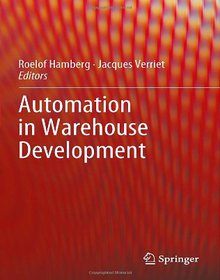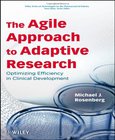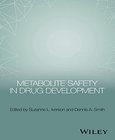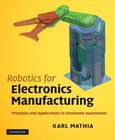Automation in Warehouse Development

Book Details:
| Publisher: | Springer |
| Series: | Springer |
| Author: | Roelof Hamberg |
| Edition: | 1 |
| ISBN-10: | 0857299670 |
| ISBN-13: | 9780857299673 |
| Pages: | 251 |
| Published: | Oct 30 2011 |
| Posted: | Mar 22 2015 |
| Language: | English |
| Book format: | |
| Book size: | 9.28 MB |
Book Description:
The warehouses of the future will come in a variety of forms, but with a few common ingredients. Firstly, human operational handling of items in warehouses is increasingly being replaced by automated item handling. Extended warehouse automation counteracts the scarcity of human operators and supports the quality of picking processes. Secondly, the development of models to simulate and analyse warehouse designs and their components facilitates the challenging task of developing warehouses that take into account each customers individual requirements and logistic processes. Automation in Warehouse Development addresses both types of automation from the innovative perspective of applied science. In particular, it describes the outcomes of the Falcon project, a joint endeavour by a consortium of industrial and academic partners. The results include a model-based approach to automate warehouse control design, analysis models for warehouse design, concepts for robotic item handling and computer vision, and autonomous transport in warehouses.Automation in Warehouse Development is targeted at both academic researchers and industrial practitioners. It provides state-of-the art research on warehouse automation and model-based warehouse design. These topics have been addressed from a systems engineering perspective by researchers from different disciplines including software, control, and mechanical engineering, with a clear focus on the industrial applications of their research.
Download Link:
Related Books:
The Agile Approach to Adaptive Research
Optimizing Efficiency in Clinical Development
Apply adaptive research to improve results in drug developmentThe pharmaceutical industry today faces a deepening crisis: inefficiency in its core business, the development of new drugs. The Agile Approach to Adaptive Research offers a solution. It outlines how adaptive research, using already-available tools and techniques, can enable the industry to streamline clinical trials and reach decision points faster and more efficiently.With a wealth of real-world cases and examples, author Michael Rosenberg gives readers a practical overview of drug development, the problems inherent in current practices, and the advantages of adaptive research technology and methods. He explains the concepts, principles, and specific techniques of adaptive research, and ...
Metabolite Safety in Drug Development
A reference on drug metabolism and metabolite safety in the development phase, this book reviews the analytical techniques and experimental designs critical for metabolite studies. It features case studies of lessons learned and real world examples, along with regulatory perspectives from the US FDA and EMA. Reviews the analytical techniques and experimental designs critical for metabolite studies Covers methods including chirality, species differences, mass spectrometry, radiolabels, and in vitro / in vivo correlation Discusses target pharmacology, in vitro systems aligned to toxicity tests, and drugdrug interactions Includes perspectives from authors with firsthand involvement in industry and the study of drug metabolites, includin...
Robotics for Electronics Manufacturing
Principles and Applications in Cleanroom Automation
Understand the design, testing, and application of cleanroom robotics and automation with this practical guide. From the history and evolution of cleanroom automation to the latest applications and industry standards, this book provides the only complete overview of the topic available. With over 20 years' industry experience in robotics design, Karl Mathia provides numerous real-world examples to enable you to learn from professional experience, maximize the design quality and avoid expensive design pitfalls. You'll also get design guidelines and hands-on tips for reducing design time and cost. Compliance with industry and de-facto standards for design, assembly, and handling is stressed throughout, and detailed discussions of recommended materials ...
2007 - 2021 © eBooks-IT.org



